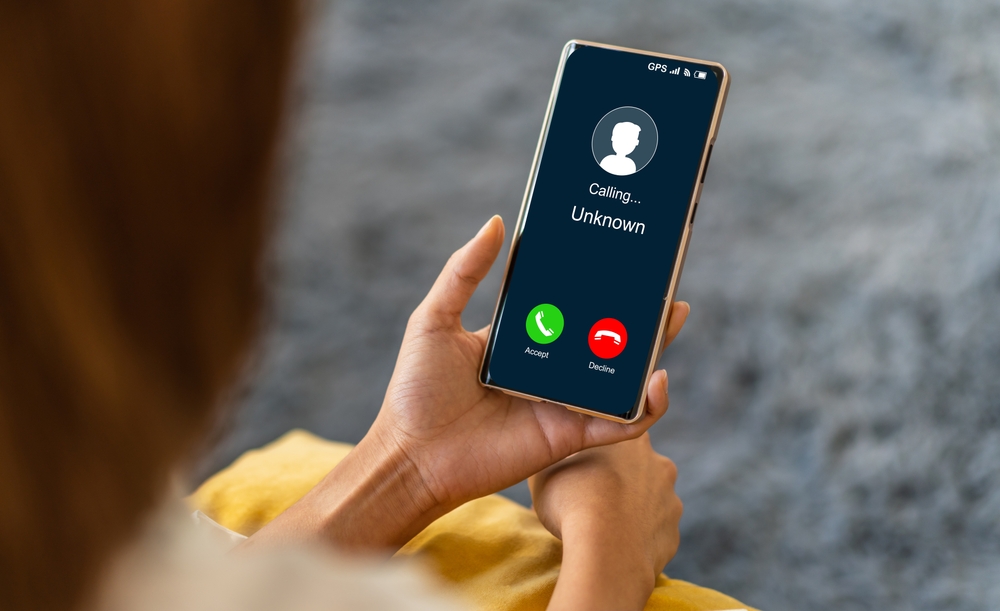Don’t Get Taken By These Phone Scams
Nowadays, it’s easy to be fooled by scams that are designed to seem real, and frighten you into taking immediate action, which could cost you significantly. Digital technology has advanced modern conveniences, including phone calling, but has also opened the door for those who use it for nefarious purposes.
A reliable form of communication, a simple phone call, can now be initiated by fraudsters who seek to exploit and steal from unsuspecting targets. There are numerous modern day scams to be aware of so you can protect yourself from falling victim to them.
Here we review the most common phone scams and offer tips to avoid them so you can protect yourself and your family as well as your finances.
One of the most common and popular among these scam artists is a method called “phishing.” The name implies exactly what it means. Scam artists posing as trusted individuals or institutions such as banks, utilities, credit card companies and sometimes even government agencies, will call you with a seemingly urgent matter that needs immediate attention in an effort to “phish” for your personal and financial information.
Oftentimes, these callers will create a false sense of urgency causing the recipient to panic and take steps that allow the scammer to steal from them. They may request personal information such as your bank account number, social security number or other sensitive information you should never share with anyone unless you verify who they are.
These scammers may be relentless in their pursuit of your personal details, calling multiple times over the course of weeks or months in order to get you to comply with their requests. They may attempt to befriend you in order to gain your trust, which builds a false sense of security while they gather sensitive information about you they can use to steal from you.
The rule of thumb in this case is never give any information to anyone that calls you. If you receive a call from an unknown person or number, hang up and call the institution they are claiming to represent. Make sure to use a number on a statement, bill or back of a credit card, or app to ensure you are reaching the legitimate party. Nowadays, most banks, utility companies and others have fraud departments you can report suspicious activity to. If you receive a call you suspect is a scam artist, write down the number from the caller I.D. and report it to the institution they are pretending to be from.
With computer technology, these scammers can be quite crafty and the number on the caller I.D. may be an incognito number disguised to look familiar to you. If you don’t recognize a number, the best thing to do is to send it to voice mail and wait to see if they leave a message. You can also set your smartphone to send unknown callers to voice mail to ensure you do not speak to a potential scammer who is often quite adept at hooking you with their sense of urgency.
By letting the call go to voicemail, more often than not the scammer will not leave a message. They may attempt to call you several times and not leave a message, trying to bait you into answering or calling them back. Don’t do it!
Another current day scam involves fake lottery or sweepstakes winnings. Scammers will call you to tell you that you’ve won a huge sum of money, and in order to collect it you need to transfer a processing fee to them to cover their cost of issuing the prize money along with any related taxes. DO NOT FALL FOR THIS! It illegal to charge to collect any lottery or sweepstakes prize. This is a huge red flag that a scam is in the works and you are their targeted victim!
Other current day scams are callers offering free vacations for the trip of a lifetime and if the targeted victim agrees, they can be fooled into paying fake fees designed to steal their money. These are not real, and not free trips. Do not respond to any callers offering you a free vacation!
The next scam that seems to be popular these days, can be rather dangerous. Scammers take a recording of a loved ones voice and manipulate it electronically so when you answer the call, you hear someone you know asking for help. These con artists can go so far as to pretend to have kidnapped your loved one for a ransom that you need to pay immediately. If you ever receive a call like this, hang up and call the police immediately! Make a note of the number they called from and try to remain calm. You can also try to call the person they are pretending to be or have kidnapped, to make certain they are safe.
Other impersonation scams may involve those pretending to be from law enforcement, the IRS, or any authority that may trigger fear. They will pressure the target to send money immediately in order to avoid their threatening “consequences.” Keep in mind that the IRS, for example, will NEVER call you on the phone if you owe them money or have any pending issue. They will send you a letter in the mail that has a direct phone number you can call to resolve any outstanding matter. If you receive a call from someone claiming to be from the IRS or any other authoritative entity, hang up and contact that organization directly to report the fraudulent activity.
One thing all scammers have in common is they will prey on emotions to manipulate their intended victim and convince you that the urgent matter needs to be addressed immediately. They may impersonate a charity needing an on the spot donation, a phone or utility company saying your bill is past due and your service will be suspended, and other false claims intended to steal your money, which could lead to financial ruin.
If you want to donate to a worthy cause, do your research to make sure they are legitimate. If you are uncertain, you can go to CharityNavigator.org to see the details of any non-profit organization, and find out more about them.
Keep this Checklist to Protect Yourself from Phone Scams:
- Always Be Skeptical of any unknown callers! Never give out sensitive personal information over the phone to a solicitation caller no matter how real it may appear.
- Verify Information: If you receive a suspicious call, hang up and look up or contact the organization directly to verify their identity.
- Don’t Panic or Act Under Pressure: Scammers often use high-pressure tactics to force you to act quickly. Instead, take your time and act carefully to verify any callers intention.
- Use Caller ID and Call Blocking: Caller ID allows you to verify if you know the person calling. These features can help you identify and avoid unwanted calls. If you are receiving suspicious calls, BLOCK them on your phone. They may attempt to call from other numbers. Keep blocking them. Eventually they will give up and move on.
- Report Scams: If you believe you’ve been a victim of a serious phone scam, or an attempt has been made to scam you, report it to the Federal Trade Commission (FTC) by going on ReportFraud.ftc.gov.


Post Comment